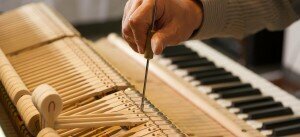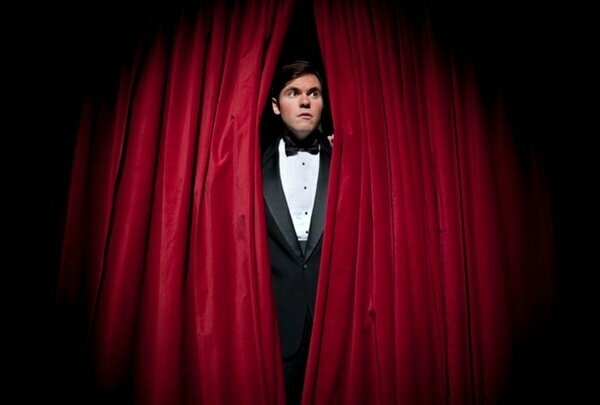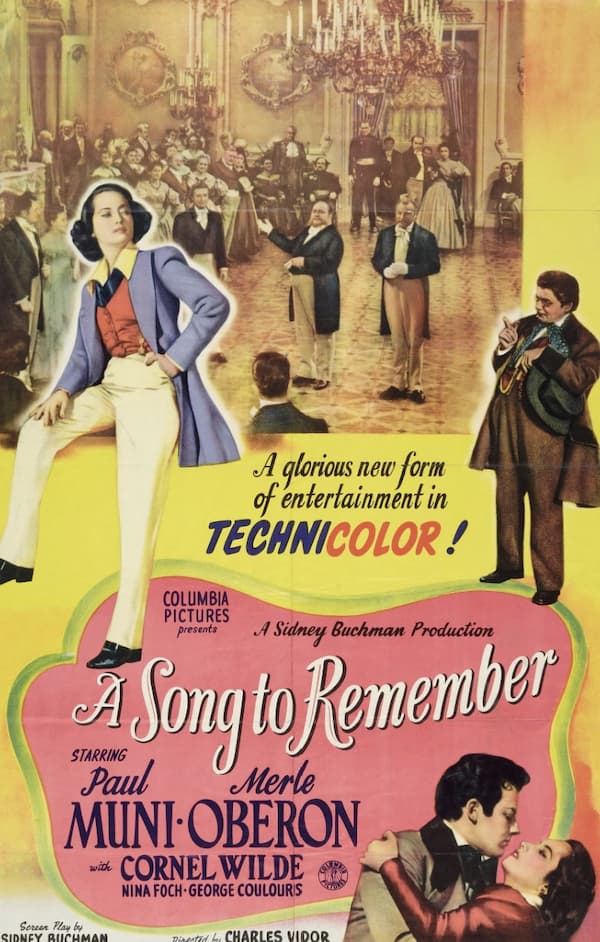 Just as pianists develop a strong attachment to the instrument they play most regularly so they can also form a very special relationship with the person who looks after that instrument – the piano tuner / technician.
Just as pianists develop a strong attachment to the instrument they play most regularly so they can also form a very special relationship with the person who looks after that instrument – the piano tuner / technician.
Each piano becomes very personal, whether it be for the little old lady who plays an hour a day or for a concert pianist. I dedicate the same amount of passion and dedication. (Paul Leverett)
Many people think pianos just need to be tuned, but in fact a good tuner / technician will also regulate (adjust the mechanical aspects of the piano), voice (adjust the piano’s tone or quality of sound by reshaping the felt of the hammers), clean and service the instrument. These are all part of the tuner’s skill and craft, honed through years of experience, and are essential to the “good health” of a piano.
Concert pianos need very regular tuning and maintenance, given the amount of use they receive: the Steinways at London’s Wigmore Hall, for example, are tuned daily, sometimes even twice-daily, depending on the concert schedule and artists’ requirements, and the pianos also benefit from biennial restringing. But even a piano in a domestic setting needs regular care and maintenance to retain its quality of sound and to ensure all the working parts are in good order.
Many tuners have a long association with pianos and the craft of tuning and piano restoration, and some family businesses go back several generations. My own tuner comes from a family of piano technicians, a tradition passed down from his grandfather and father, a master builder of pianos who trained at the Blüthner Factory in Germany. In turn, he is now training one of his sons to join the family businesses, in addition to running courses for aspiring tuners. It’s a rare skill, and there remains plenty of work, both in the domestic setting and for concert pianists and venues.
Those tuners who offer a bespoke specialist service to their clients forge firm friendships. One tuner I spoke to in the course of researching this article remains in regular contact with leading concert pianists Artur Pizzarro, Barry Wordsworth and Fou Ts’ong, amongst others. His father has prepared some illustrious instruments, including the Blüthner concert grand used by The Beatles at Abbey Road Studios, and his firm supplied a Steinway Model B on which singer-songwriter Sam Smith wrote his recent number one album.
The relationship between client and tuner is crucial: we put a great deal of trust in the hands – and ears – of these specialist craftspeople to maintain our instrument exactly to our liking. Many tuners with regular clients, such as my own tuner, get to know exactly what kind of touch and tone the client likes, so that they can adjust the piano accordingly at each visit. A sloppily-tuned or badly set up piano can be frustrating for the player, to say the least, and sometimes injurious to the instrument, yet many tuners encounter pianos which have not been well-looked after.
It’s not necessary to be a piano player to be a good tuner (though I know a number of tuners / technicians who are fine pianists themselves), but all the tuners I talked to the course of writing this article display a huge passion for the piano.
I’m obsessed with pianos. It drives my wife mad. I love my job so much, I find it hard to switch it off at the end of the working day. I feel completely relaxed when sat at a piano, and view my job as creating the perfect platform for an artist to carry out their trade. My goal is to allow a piano to reach its ultimate potential. (Doug Chapman)
An even greater degree of commitment and sensitivity is required by those tuners who work with internationally renowned concert artists who may have very particular, or quirky, requirements for the instrument they will be playing in concert. For the technician, it is a collaborative effort with the artist – discussing what the concert pianist wants from the piano. Is the sound too bright? Too mellow? Too loud? Is the repetition fast enough? All of these things can be changed to suit the performer’s individual tastes and requirements, while also responding to the acoustic of the concert hall. To prepare for a particular artist’s requirements, the tuner may listen to recent releases, read reviews and try to get a sense of that artist’s pianistic/musical personality before they meet to prepare the instrument.
When the piano is up on the stage, ready for the concert, further adjustments may be needed: do the lights cast a shadow across the keys, for example? The positioning of the piano on the stage is crucial to the artist’s comfort and the best tuner / technician will do everything possible to make sure the artist is totally at ease with the instrument.
A relaxed pianist is a happy pianist, which leads to a good performance. And above all else – make sure the piano stool doesn’t squeak! (Doug Chapman)
More Blogs
- Social Media Day
Hashtags, Hype, and Zero Chill Celebrate Social Media Day with the perfect classical soundtrack! - The Piano Sonatas by Robert Schumann
Passionate Complexity in Romantic Form Did you know Schumann wrote sonatas specifically for his daughters? -
 Six Composers With Paralysing Stage Fright – And How They Dealt With It Find out how they found workarounds or abandoned entirely...
Six Composers With Paralysing Stage Fright – And How They Dealt With It Find out how they found workarounds or abandoned entirely... -
 A Song to Remember: The 1945 Chopin Film That Made George Sand a Villain A movie reimagining Chopin as a wartime hero
A Song to Remember: The 1945 Chopin Film That Made George Sand a Villain A movie reimagining Chopin as a wartime hero



I jump started a piano tuners car . Half a minutes work .
He in exchange tuned my 1920 Chappel grand. . He also made it more even and better to play with the aid of talcum powder . .Magic!